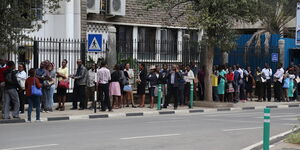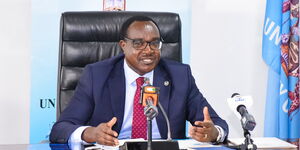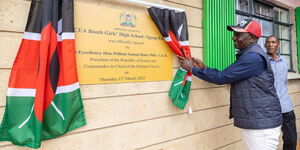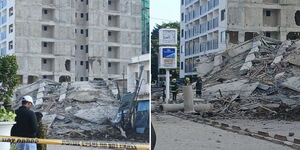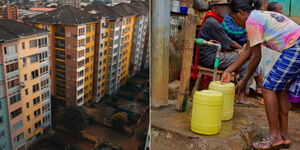Families of the June 25 protest victims have expressed their grievances after the government pathologist failed to conduct an autopsy on their kins' bodies as previously planned.
Speaking outside the City Mortuary on Tuesday, July 1, the families claimed that the pathologist had cited security concerns for his decision.
This is despite the Independent Police Oversight Authority (IPOA) reportedly directing that the autopsies be conducted on all bodies.
One of the family members claimed that they had been taken round in circles at the morgue with the facility blaming IPOA for the delays and vice versa.
"We have been [here since] Sunday and they told us the post-mortem would be conducted today. They had told us it would be conducted yesterday, but they postponed it to today," one of the family members lamented.
"We arrived very early, but the doctor said he had only been directed to carry out the post-mortem on two bodies, saying that they are still waiting for IPOA to complete our files. The IPOA has said that the autopsies are supposed to be currently ongoing."
The families are now seeking answers on the delays, which have delayed not only investigations into the deaths but also the release of the bodies to their families.
As of June 27, the Kenya National Commission on Human Rights (KNCHR) reported that at least 19 fatalities had been reported across the country during the Wednesday, June 25, protests.
The commission condemned the human rights violations during the protests, which were meant to be commemorative, and called for accountability from all responsible parties. This includes the
531 injuries, 15 enforced disappearances, 179 arrests and an undetermined number of cases of sexual violence were reported during the protests as well.
Although most of the protest casualties were a result of police brutality, none have yet been held accountable as IPOA continues to investigate the allegations.
In a controversial clip that recently surfaced online, Interior Cabinet Secretary Kipchumba Murkomen claimed that police officers would not cooperate with IPOA in cases of shooting civilians, just days after he seemingly gave a shoot-to-kill order to the same police officers.
He has since claimed his words were taken out of context, and he meant that police officers should be able to defend themselves from imminent threats of death or serious injury or when protecting property and innocent civilians.

